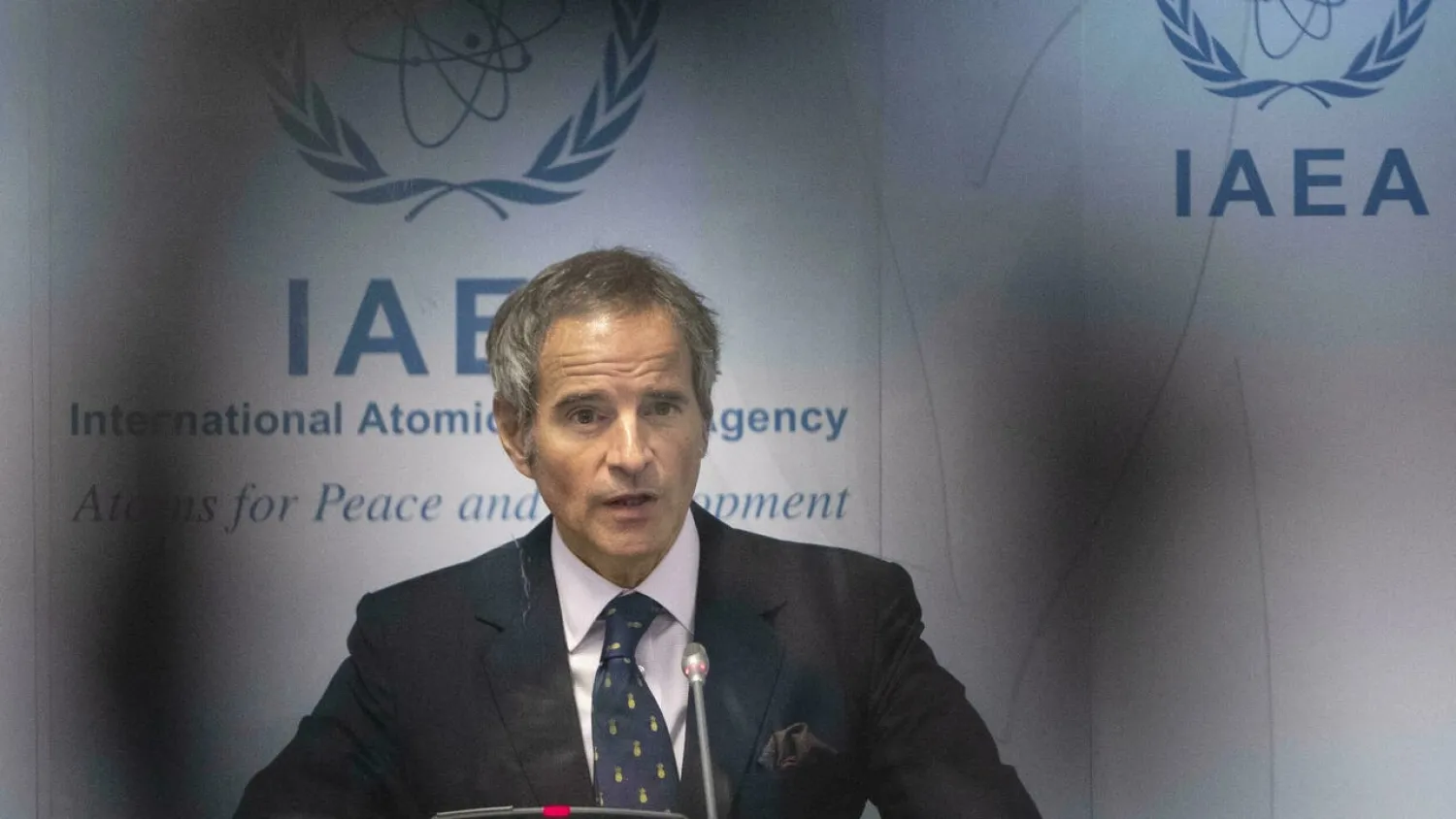Iran said it hoped a visit by the head of the UN's atomic watchdog that started Monday would be "constructive", a week ahead of the resumption of talks seeking to revive the 2015 nuclear deal.
Rafael Grossi, chief of the International Atomic Energy Agency (IAEA), was greeted on arrival by the spokesman of the Atomic Energy Organization of Iran (AEOI), Behrouz Kamalvandi, state news agency IRNA reported.
He is expected to meet on Tuesday with Foreign Minister Hossein Amir-Abdollahian and AEOI head Mohammad Eslami, who is also one of Iran's vice presidents.
"We hope that Rafael Grossi's visit will be as constructive as the previous ones," foreign ministry spokesman Saeed Khatibzadeh told reporters.
"We have always advised the IAEA to stay on the path of technical cooperation, and to not let certain countries pursue their political orientations on behalf of the IAEA."
On Friday, the IAEA said Tehran had again increased its stockpile of highly enriched uranium, many times in excess of the limit laid down in the 2015 agreement.
Grossi's visit comes as Iran readies for talks with world powers in Vienna on November 29 with the aim of saving Tehran's 2015 deal with world powers, that promised it sanctions relief in return for curbs on its nuclear program.
On November 12, Grossi had described as "astonishing" his lack of contact with the new Iranian government of President Ebrahim Raisi.
Days later, Tehran responded by announcing that it had invited the watchdog chief to visit.
"We will leave for Vienna with a full team and a serious will to lift the sanctions," Khatibzadeh said Monday.
"The other parties should also try to come to Vienna to reach a practical and comprehensive agreement."
'Psychological atmosphere'
The landmark deal was torpedoed in 2018 by then US president Donald Trump's unilateral decision to withdraw Washington from it and impose a punishing sanctions regime.
Iran has since stepped away from many of its commitments, but the administration of US President Joe Biden has advocated a return to diplomacy to save the agreement.
The remaining parties to the deal -- Britain, China, France, Germany and Russia -- will join the talks while the United States will participate indirectly.
Grossi was last in Tehran on September 12, where he clinched a deal on access to monitoring equipment at Iran's nuclear facilities.
On Saturday, US Defense Secretary Lloyd Austin warned Washington was capable of deploying "overwhelming force", and that all options would be open if diplomacy fails to halt Iran's nuclear program.
Tehran says its nuclear program is for peaceful purposes.
Asked whether Iran feared a US military intervention if negotiations fail, Khatibzadeh pointed to the US military pullout in Afghanistan in August.
"We have seen all their options in a country like Afghanistan and they have seen the outcome of those options; do not believe what they say," he said.
Robert Malley, the US envoy for Iran, also warned on Friday that Tehran was approaching the point of no return and that "time is short" for reviving a nuclear deal.
But Khatibzadeh accused the US of trying to "sell a false narrative to the international community in order to create a psychological atmosphere in the run-up to the Vienna talks", adding that it "will not help them at all".









